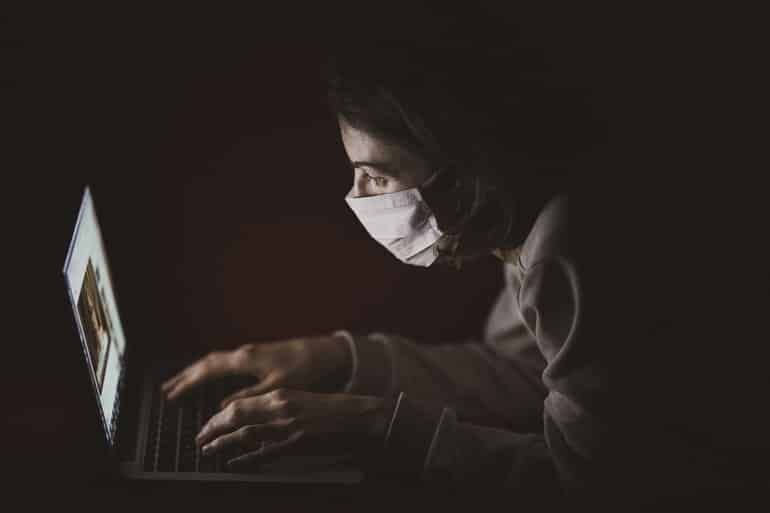Summary: People who believe conspiracies about COVD-19, including vitamins can cure coronavirus, or that governments are using the virus and vaccines to control the population, are more prone to developing depression and anxiety.
Source: European Psychiatric Association
The Global COVID-19 pandemic has been marked by a significant minority of people expressing conspiratorial beliefs. Now a new study has shown that these beliefs may be harmful, especially to those who are prone to anxiety and depression.
This work is presented at the European Congress of Psychiatry, with simultaneous peer-reviewed publication.
Surveys have shown that huge numbers of people are open to conspiratorial beliefs about COVID-19. Survey in the US found that around a quarter of Americans believe that the outbreak was “intentionally planned by powerful people”.
In major European counties (Germany, France, Italy and the UK), between 30% and 40% of people believe that the government is taking the chance to control citizens, or working with the pharmaceutical industry to conceal vaccine effects.
“These polls show that tens of millions of people are open to belief in some level of conspiracy as a result of the COVID pandemic,” said lead researcher Dr Paweł Dębski (Medical University of Silesia in Katowice, Poland).
“Our work now shows for the first time that these people are more at risk of more serious anxiety or depression symptoms than the rest of the population. And as the WHO has indicated, false beliefs may also put the rest of the population at risk”.
The research group, from several Polish Universities, recruited nearly 700 volunteers (585 female, 110 male, 5 other, average age 24.8) and asked them about their beliefs. They developed and validated a new way of measuring belief in COVID-19 conspiracy theories, the COVID-19 Conspiratorial Beliefs Scale.
The researchers used this in conjunction with other questionnaires such as the Generic Conspiracist Beliefs Scale (which measures how much one believes in general conspiracy theories, such as major international decisions being taken a secret group, or covering up evidence of aliens), and the Hospital Anxiety and Depression Scale (which measured the level of anxiety and depression).
Combining the analysis enabled them to see how belief in COVID conspiracies is higher in those who believe in other conspiracies, and also to correlate belief in COVID conspiracies with levels of anxiety and depression.
Dr Debski continued, “We see that the severity of anxiety can be increased in those who express a belief in conspiracy theories. However there is a very significant increase in the severity of depression symptoms.
“At this stage, we are unable to say whether a belief in conspiracy theories cause more anxiety and depression, or whether people who are more anxious and depressed are more attracted to these theories”.
The COVID-19 Conspiratorial Beliefs Scale suggests a series of 10 scenarios and asks the volunteers to rate their belief from 1-5. The most widely believed COVID-19 conspiracy theories (in order of belief) were:
- SARS-CoV-2 tests are unreliable, they may be positive in the case of infection with another virus (with 3.114 out of a possible 5 points maximum)
- Governments deliberately spread false information about COVID-19 in order to conceal the actual state of the pandemic (3.034 out of 5)
- Vitamins and minerals supplementation can cure SARS-CoV-2 infection (2.616 out of 5)
Pawel Dębski said, “This is a fast moving field. COVID has only struck us in the last couple of years, and developing the tools to evaluate the mental health effects takes time. Our recruitment was via the internet, and we need to develop better recruitment methods. Our next steps are to see whether beliefs are related to specific psychological traits, and whether any pro-health messages can help”.

Commenting, Professor Umberto Volpe (Università Politecnica delle Marche, Ancona, Italy), Chair of the European Psychiatric Association section on Digital Psychiatry said:
“Conspiracy theories and misinformation during infectious outbreaks are nothing new, as they have always proliferated in the history of human epidemics. However, during the COVID-19 pandemic, the exponential growth of digitalization and social media has made new ‘virtual spaces’ available.
“Social media have been important in compensating for the lack of personal contact, but the wider use of digital media may also have helped spread misinformation more rapidly, and to amplify harmful messages.
“This ‘Infodemic’ may be generally stressful, as well as causing people to doubt public health messages, but, as this study highlights, it may pose also an additional mental health risk for those who are more prone to false beliefs”.
About this depression and conspiracy theories research news
Author: Tom Parkhill
Source: European Psychiatric Association
Contact: Tom Parkhill – European Psychiatric Association
Image: The image is in the public domain
Original Research: The findings will be presented at the European Congress of Psychiatry







